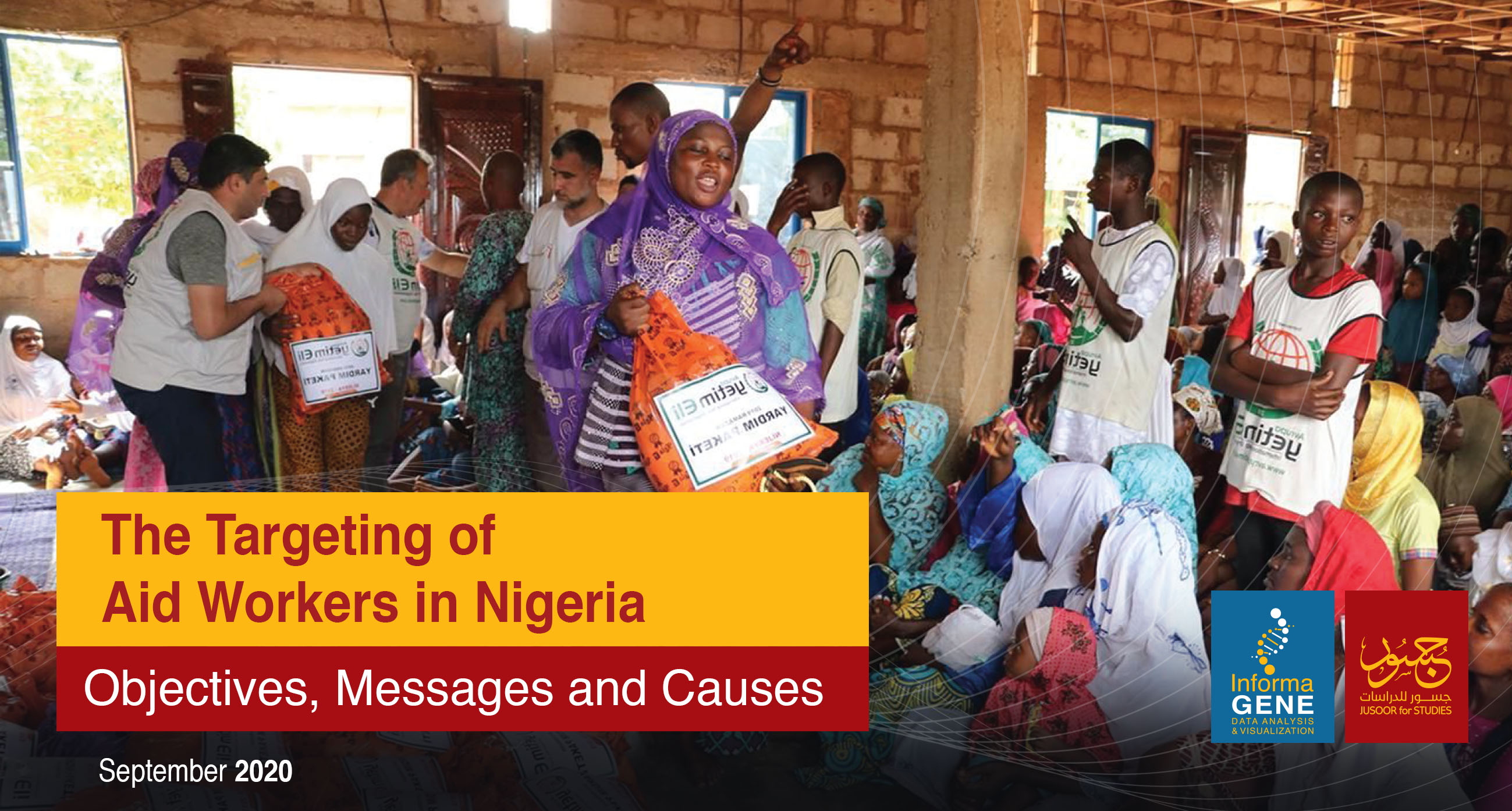The Targeting of Aid Workers in Nigeria,, Objectives, Messages and Causes
Introduction
Armed groups around the world, irrespective of their different ideologies, use kidnapping and kidnapping for ransom as a method to achieve one of the following goals:
• First: to obtain funding in the form of the ransom money paid in exchange for the release of the kidnapped hostages.
• Second: to secure non-financial gains such prisoners swap, using kidnappings to put pressure on governments involved in military acts by taking their citizens as hostages, or to withdraw from alliances in exchange for the release of hostages.
• Third: to control foreign organizations to force them to implement certain agendas requested by the kidnappers, or with the aim of preventing their arrival to region as a means to stop any foreign infiltrations and ensure full control over the local population.
• Fourth: to access to the media attention and highlight specific issues.
ISIS’s aims from kidnapping aid workers centrlize around obtaining fund for its operations or as a form of propaganda for the organization. ISIS includes this goal in its propaganda to prove it is consistent in its principles to fight “the West and infidel states and their client regimes.” The organization relies on this propaganda to recruit new member and spread terror among the ranks of other organizations operating in locations close to its operation, thereby prompting them to negotiate with ISIS and agree to support the organization in some form. ISIS also approaches kidnapping as a symbolic and media victory against the parties that fight it, uses it to achieve prisoner exchange for ISIS detainees or to fulfill other objectives such as imposing a ceasefire or stopping a military campaign against the areas under its control. ISIS’s approach to kidnapping has made it an influential actor in conflict areas as it imposes itself as an authority that must be dealt with to ensure that humanitarian relief aid reaches affected and vulnerable populations. Under these circumstances, ISIS and other jihadist groups dictate certain conditions to the organizations including: removing slogans from the aid; preventing organizations from reaching the required locations; requiring organizations to deliver aid to the extremist parties themselves so they distribute it according to their calculations, among other demands. Organizations’ compliance with these demands is an indicator the Jihadist groups have successfully rendered their organizations as effective actors, outside of the state, whose areas can only be accessed by dealing with them.
This study was prepared in collaboration with the InformaGENE platform for data analysis and visualization.










